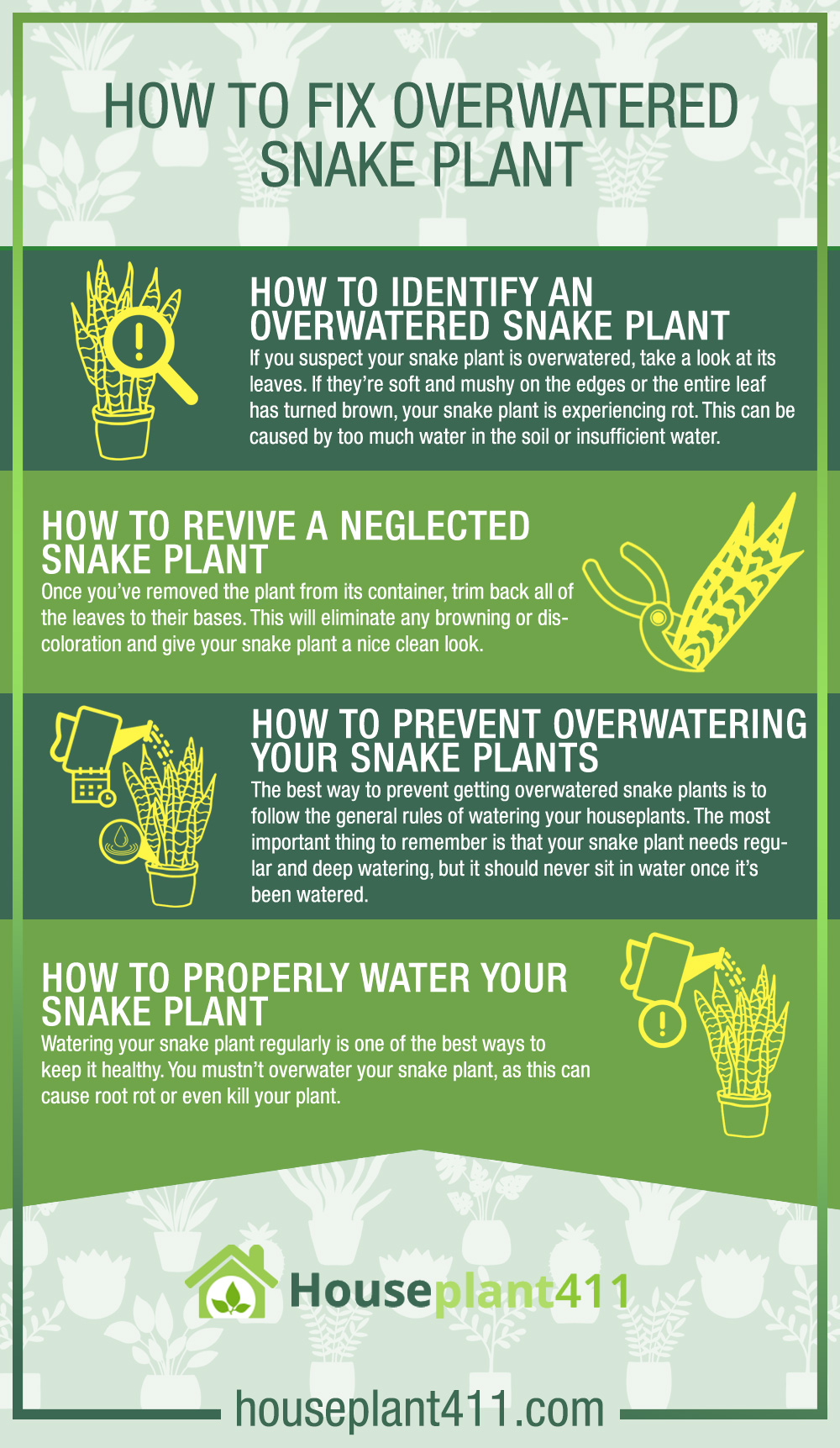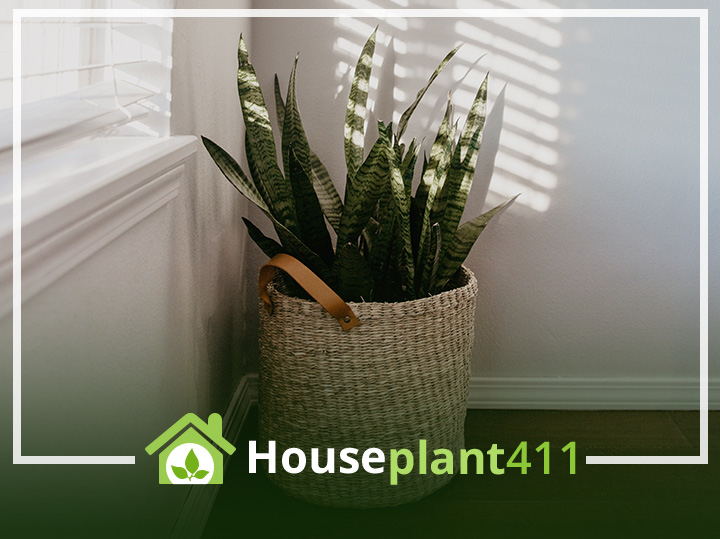If you’re new to snake plants, the first thing you’ll learn is that they’re very hardy. They come from South Africa and thrive in desert climates, so they can often handle neglect better than other houseplants. But if you’ve been following our advice and taking great care of your snake plant, then you might have run into a problem: an overwatered snake plant! It happens to the best of us—here’s how to fix it.
How to Identify an Overwatered Snake Plant
If you suspect your snake plant is overwatered, take a look at its leaves. If they’re soft and mushy on the edges or the entire leaf has turned brown, your snake plant is experiencing rot. This can be caused by too much water in the soil or insufficient water.
Another indicator of overwatering is if you find black spots on your snake plant’s leaves, which indicates fungi are growing on them. If you see these signs, remove any affected leaves from your pot as soon as possible to prevent further damage to your other plants.
Checking for water retention in the soil is also important when it comes to identifying whether or not you need to repot an overwatered snake plant; this means that there’s too much moisture trapped inside of its root balls, so it needs more drainage holes added before repotting time!
How to Revive a Neglected Snake Plant
Once you’ve removed the plant from its container, trim back all of the leaves to their bases. This will eliminate any browning or discoloration and give your snake plant a nice clean look.
Next, remove as much excess water from the pot as possible. Use a towel to absorb any remaining moisture from within the soil. You may want to use something like tongs or garden gloves in order to avoid getting dirt on your hands—and remember that you shouldn’t touch your snake plant at all!
After removing all excess water from inside of its container, allow your snake plant’s roots and soil to dry out completely over two weeks’ time before replanting it into a new pot filled with fresh soil mix (without fertilizer). You’ll want this fresh mix because overwatered plants often experience root rot due to too much moisture remaining in their pots after they’ve been replanted; by using fresh potting mix instead of preserving old soil/root material with leftover nutrients, we can prevent this unfortunate outcome! Once again, make sure there is no standing water left behind when repotting—you don’t want any lingering dampness inside that could cause problems later on.
How to Prevent Overwatering Your Snake Plants
The best way to prevent getting overwatered snake plants is to follow the general rules of watering your houseplants. The most important thing to remember is that your snake plant needs regular and deep watering, but it should never sit in water once it’s been watered. Instead, allow the soil to dry out slightly before watering again.
We recommend watering at least once a week (more often during hot spells) for about 15 minutes and allowing the soil to dry completely before re-watering again. You’ll know when you need more frequent watering if your leaves begin falling off or pulling away from their stems at an alarming rate.
How To Properly Water Your Snake Plant
Watering your snake plant regularly is one of the best ways to keep it healthy. You mustn’t overwater your snake plant, as this can cause root rot or even kill your plant. We’ll go over how to water your snake plant below properly.
- When the soil is dry, water it until you see a small amount of water coming out from the drainage hole on the bottom of the pot. If you can squeeze a drop out of the soil when it’s time to water again, it means there isn’t enough moisture in the pot for proper root growth.
- Do not let its leaves get limp, as this indicates that it needs more watering than usual!

Conclusion
Hopefully, this article has helped you identify whether or not your snake plant is being over-watered. If so, it’s important to know how to deal with this problem before it gets out of hand. Overwatering can be deadly for your snake plant, so if you notice any of the symptoms mentioned above, act quickly!

